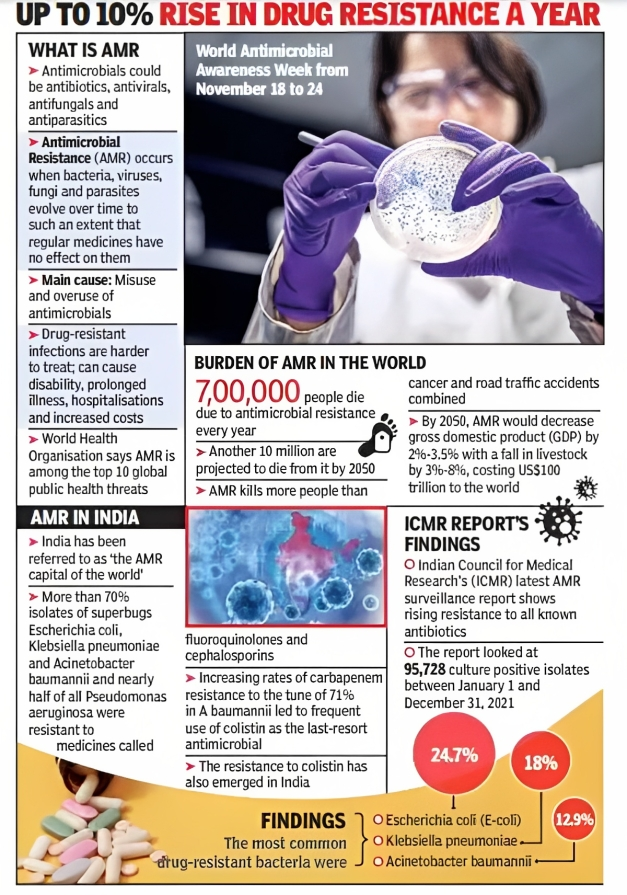7667766266
enquiry@shankarias.in
While the world is emerging from the acute phase of the COVID-19 pandemic, the very harmful but invisible pandemic of Antimicrobial Resistance (AMR) is unfortunately here to stay.
India is the largest consumer of antibiotics in the world.
Antimicrobial resistance (AMR)
Causes of AMR
An Indian Council of Medical Research (ICMR) study in 2022 showed that the resistance level increases from 5% to 10% every year for broad-spectrum antimicrobials.
Impacts of AMR
In 2019, AMR was associated with an estimated 4.95 million human deaths.

References